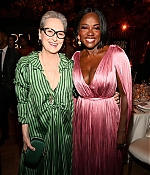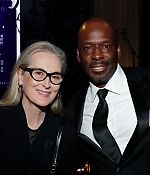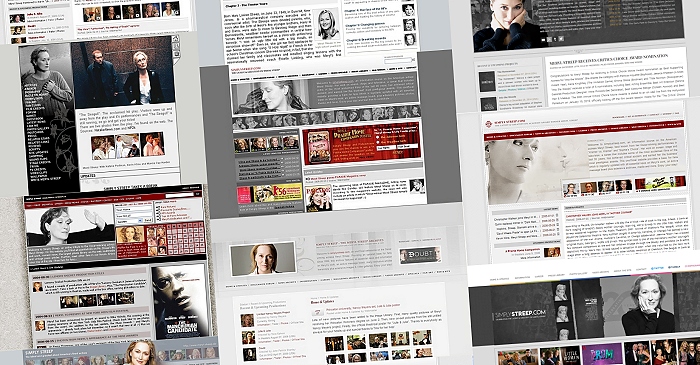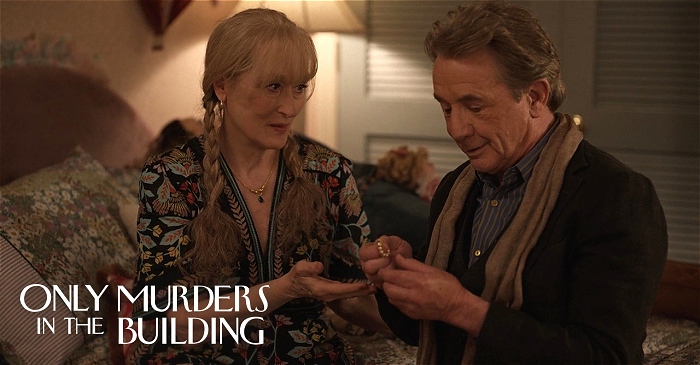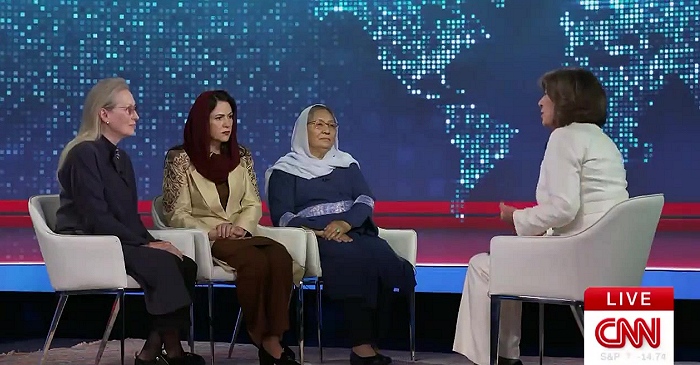
|
Bringing the Iron Lady to the big screen
The Telegraph ·
December 24, 2011
· Written by Mick Brown
|
The film director Phyllida Lloyd recently met an acquaintance on the street, and they fell to talking about Lloyd’s new film about Margaret Thatcher, The Iron Lady. ‘She said, “I’m going to really struggle with this, Phyllida, because obviously I want to see it”,’ Lloyd remembers. ‘ “But I had a pact with a friend from university that we would meet at a certain place on the day she died and drink ourselves under the table in celebration.” ’ Lloyd gives this some thought. ‘What is so interesting,’ she says at last, ‘is the way that people hold on to things. But I suppose the point of the film is that mortality is going to deal a bigger blow to all of us than anything our enemies can conjure.’ From its opening frames, The Iron Lady is a film that ambushes and disarms you in its depiction of either the greatest British Prime Minister of post-war Britain or ‘that awful woman’, depending on your point of view – and everybody over the age of 40 has a view. An elderly woman, dressed in a mackintosh and a headscarf, is seen in a corner shop, picking up a carton of milk, taking it to the counter and expressing some astonishment that it should cost 49p. That much! It takes a moment to realise that this is Lady Thatcher.She shuffles back to her Belgravia home, where her secretary and security staff confer in some agitation about how she has managed to evade their attentions and leave the house on her own, while her husband, Denis, chuckles sympathetically about her putting the cat among the pigeons. But Denis is dead, his presence simply a figment of Thatcher’s imagination, appearing intermittently at her side as over the course of three days she is assailed by memories of her childhood, her marriage, her rise to power and her eventual downfall. It’s the Iron Lady, melted. Lloyd is at pains to emphasise that this is not just another biopic, in the conventional sense of the term. ‘I think biopics are usually unsatisfying unless you’re inspired to tell a bigger story about the human condition.’ And the bigger story in this case, she says, is a ‘Shakespearean look at power and the loss of power.’ But the film inadvertently casts light on other aspects of the human condition – our tendency to lionise, and to demonise. Even at the age of 86, and long disappeared from public life, Margaret Thatcher has lost none of her capacity to divide and inflame.
If the measure of a film’s success is its ability to elicit antipathy from both sides of the political fence, then even before it opens The Iron Lady is a palpable hit. Previews of the film shown in November – and clearly designed to generate debate – have already split opinion. ‘It makes me sick to even think people will enjoy watching this filth!’ wrote one commentator under a Guardian review, which described the film as ‘Thatcher without Thatcherism’, and dismissed it as ‘this often silly and suspect picture’. And on the other side of the political divide, unnamed ‘friends’ of Lady Thatcher have been quoted describing the film’s depiction of her as a lonely old lady assailed by dementia as ‘an insult’. Lord Bell, who as Tim Bell was a key PR adviser to the Prime Minister throughout the 1980s, while admitting that he had not actually seen the film dismissed it as ‘rubbish’, the only value of which was to ‘make some money for Meryl Streep and whoever wrote it.’ On this score at least, there has been almost universal agreement among everyone that Streep’s performance is magnificent, capturing Thatcher’s air of steely resolve, the basilisk stare that could wither those not only on the opposition benches but also in her own cabinet, and, too, the curiously coquettish charm that she could turn on when the situation demanded it. The idea of a film about Thatcher was first conceived 10 years ago by Damian Jones, a producer whose previous credits include The History Boys. ‘She’s an extraordinary, iconic character and I couldn’t think why no one had made a film about her,’ he says. ‘If she’d been American they would have made half a dozen movies by now. I thought, wouldn’t it be a magnificent story to tell if you could try to find out what went on behind the iron mask, so to speak.’ Unsure of how to advance the project, Jones put it to the back of his mind. It was not until 2006, and the release of Stephen Frears’s film The Queen, that Jones saw the narrative possibilities for a film about Thatcher, then The Devil Wears Prada convinced him he knew who should play her. ‘Watching Meryl Streep, it was like – there she is! It was a pipe-dream at that point, but one that I was not shy about vocalising. People would look at me as though I were mad. I probably was.’ Inspired by the way in which The Queen had told its subject’s story through a single, critical moment in her reign – the death of Diana – the first drafts of a script focused on the 17 days leading up the Falklands War.
‘It had all the politics, and the machinations and the facts, but it struggled to tell us something new about her,’ Jones says. ‘I remember telling someone I was doing a film about Margaret Thatcher, and their reaction was one of shock, then fascination, and then the comment, “I’d love to know what was always in her handbag.” And that was what drove the project – the desire to make this film personal, and something to relate to.’ It now passed into the hands of Abi Morgan, whose credits include the BBC series The Hour. Morgan says there were two things that determined her approach to the script. The first was seeing a newspaper photograph of Thatcher coming out of her Belgravia home. ‘That set me thinking about how she lives now, and how she might look back on her reign as Prime Minister,’ Morgan says. The second was reading a newspaper serialisation of Carol Thatcher’s 1998 memoir, A Swim-on Part in the Goldfish Bowl, in which she described her mother’s slide into dementia, the once razor-sharp mind struggling to remember names and places. ‘That really was one of the springboards for me,’ Morgan says, ‘the notion of what it means if your life and your memory starts to fracture in front of you. ‘At the time, there were a number of terrorist attacks going on, and I thought it must have been extraordinary to have once been in a position of power where you could effect change, and then realising that now you’re powerless. To me, that felt like such a strong comparison with the notion of growing old, becoming more invisible and losing your physical power as well.’ It is this depiction of an old lady in the grip of dementia that admirers of Thatcher are likely to find most difficult about the film, and that has already drawn criticism from her friends.While this is undoubtedly a powerful dramatic device, presenting a stark contrast to the image of the indomitable Iron Lady, and clearly designed to elicit sympathy from the viewer – and while it is also true to the facts – isn’t it a cruelty to depict any living person in such a fragile state? Phyllida Lloyd says ‘many months’ were spent discussing the sensitivities around the question of Thatcher’s fragile mental state. ‘But there was nothing in the script that I felt attacked her dignity. And I knew that Meryl was never going to approach this with anything other than the supreme empathy which is her stock-in-trade.
‘The reason that Meryl, Abi and I wanted to do this project was because we wanted to explore the end of things in a compassionate way. We might show extreme arrogance, irrationality and fury in her past life; but the portrait of the old lady was something that touched on our mothers, our grandmothers, ourselves. We’re exploring the frailty of old age, grief and loss on a more universal level.’ The Iron Lady sobriquet was given to Margaret Thatcher by the Soviet newspaper Red Star. It was not intended as a compliment, but she took it as one. Indeed, after the Falklands War, Enoch Powell, in a laudatory address in the Commons, quoted a definition of iron: ‘ferrous matter of the highest quality… of exceptional tensile strength, is highly resistant to wear and tear and to stress, and may be used to advantage for all national purposes.’ Thatcher was so delighted by the description that she hung the quotation on her office wall. For Lloyd, this sense of utter conviction is the most fascinating aspect of Thatcher’s rise, underpinning her struggle to overcome ‘the twin prejudice’ against her gender and her class. ‘We spoke to a number of people who had been very close to her,’ Lloyd says, ‘and I asked one, which was more significant in the workplace, her gender or her being lower-middle class? And this person, who had been working with her for decades, said, “Unquestionably her being lower middle-class was a much, much bigger issue.” ‘You think of this, and you realise how alone she must have felt, for both reasons. I’m sure the job is lonely for David Cameron, but I think to have been the outsider, particularly in the cabinet she inherited from Ted Heath and which she re-formed as her own shadow cabinet – that group of boys, many of whom had had their sights set on Number 10 since Eton – and she’d never contemplated being leader of the party, let alone Prime Minister; it’s really the stuff of myth.’ In that sense, Lloyd says, the film is a series of reflections on Thatcher wrestling with being alone. ‘She feels alone as she enters the House. She feels alone in Heath’s cabinet. She feels alone in the 1980s when the wets are revolting against her. She feels alone over the Falklands. And then finally she has to give up the one source of comfort, the ghost of her husband, and face up to a life of solitude.’ It is also a study of how Thatcher rose in an era before political ‘spin’. It is impossible, Lloyd says, to imagine her on the way to an interview with Robin Day, saying to an aide, ‘Remind me, what do I think about this?’
‘This is someone who was a natural politician, and whose political instincts in the early years were thunderously accurate. She had such a strong instinct that they could make these public spending cuts and put thousands of people on to the dole while her other ministers were saying “society will not tolerate this”. ‘But the story of the film is that that instinct began to fail. She becomes somebody who is unable to hear the advice, unable to collaborate, and who then begins to flounder because [her] instincts are somehow off-kilter. She thought she would go on for ever, and there is something very poignant, and absurd, about that.’ Lloyd and Meryl Streep have worked together once before, three years ago on the film adaptation of Mamma Mia!, in which Streep played the role of a woman juggling with three lovers from her past while energetically belting out Abba songs. Lady Thatcher could hardly be more different. Lloyd says her first reaction to Damian Jones’s suggestion that Streep should play Thatcher was to leap at the prospect – ‘and that’s an understatement’ – closely followed by a feeling of trepidation. To make a film about Margaret Thatcher was provocation in itself, she says; to cast an American actress ‘seemed like double jeopardy. Then I thought, actually this is entirely correct. We need a superstar to play Margaret Thatcher – somebody of that size. And because it was a potentially chilly role, I thought it was really important to have someone with warmth and wit.’ And tenacity. ‘Just as Margaret Thatcher had to work on her accent, her manner, her presentation, her hair, so Meryl had to do the same.’ And just as Thatcher had to work to convince the remnants of Ted Heath’s cabinet that she was worthy to lead them, Lloyd continues, so Streep ‘had to try just as hard to convince 350 British men sitting in our House of Commons set that she was Margaret Thatcher.’ (When Streep first walked on to the set, Lloyd says, ‘you could have heard a pin drop’; but she knew the actress had pulled it off when she came back on after lunch and the actors on the Labour benches started booing.)
Streep has spoken about how she jumped at the chance to play the role. ‘How many people get to play the first female leader in the Western world?’ Playing the scenes where Thatcher stands at the dispatch box, she says, left a deep impression of the scale of her achievement in rising to the position of Prime Minister. ‘And she did that not by dint of media savvy, or whatever it is that people build their careers on in the current system, at least in my country. It wasn’t how friendly you appear; it was how competent. She had to be more prepared, better prepared, have thought of all the answers – and also questions that never would occur to be asked, she had to have the answers for those things too – because she had to be better than any man in order to keep that position.’ Streep’s performance is extraordinary, not only capturing Thatcher precisely in her voice, gestures and appearance (helped by the prosthetics design of Mark Coulier), but also brilliantly tracing the emotional arc of her character from ambition to conviction, to hubris and finally to the bewilderment and confusion of old age. Playing a character over a span of 40 years, she says, is less of a problem for someone of her age (she is 62). ‘You still think, in some part of you, you are the same person you were at 16, or 26 or 36 or 46 or 56. So, you know, you have access to all the people and all the ages you’ve already been; it’s the great advantage, I guess, if there is one, to getting older.’ Damian Jones says there was some discussion about whether formally to approach Thatcher’s office for co-operation on the film. ‘But it was just too fraught, you know; we thought it was an uncomfortable relationship for them as well as for us.’ But Thatcher’s office, he goes on, were informed the film was being made. ‘We told them that we wanted to proceed with her dignity in mind. We understood from their response that she had never endorsed such a drama, nor had she condemned it. The implication was that she would remain neutral.’ At the same time, he says, he heard from people around Lady Thatcher that her reaction was, ‘Oh, another programme!’ ‘I rather liked the dismissive nature of that comment,’ Jones says. Nor was any approach made to her two children, Carol and Mark. Friends and former colleagues of Thatcher did give advice, Jones says (he declines to name them); and parliamentary whips were on hand during the shooting of the scenes in Parliament to advise on procedure and coach the extras playing MPs in the appropriate groans, cheers and, as Jones puts it, ‘goading tactics’. The absence of any visible women MPs in the chamber is a deliberate device, Lloyd says, to highlight Thatcher’s sense of isolation as a woman. Abi Morgan is at pains to stress that The Iron Lady is neither a documentary nor a biopic, but a work of the imagination, and as such it exercises broad artistic licence. Thatcher did not, as the film depicts, witness the death of her mentor Airey Neave, killed by an IRA bomb planted in his car at the House of Commons. Nor did she hammer the table in a meeting with her chiefs of staff about the General Belgrano and say, ‘Sink it.’ (Morgan says she wrote the words in a memo.) Key moments and events in her time in office pass in a cinematic shorthand – archive newsreel of the miners’ strike, a shot of protesters banging on the roof of her car during the poll tax riots.
Her character is delineated in a series of broad but effective brushstrokes: teaching a flustered Carol to drive, she remarks that ‘one must be brave if one is to take the wheel’. When a meeting of Ted Heath’s cabinet, where Heath is arguing for consensus, is suddenly plunged into darkness by a power cut, it is Thatcher, his education secretary, who brings forth a torch – shining light into the darkness. Morgan describes the film as a series of episodes of someone ‘who is under siege by her own past’. And in a life of that scale it is inevitable that large parts of it should have fallen by the wayside. An early scene dramatising the moment in 1983 when a Bristol housewife, Diana Gould, challenged Thatcher over the sinking of the Belgrano in a televised phone-in was cut. ‘I’d loved to have to gone to Chequers in the film, and to have spent longer looking at the IRA,’ Morgan says. ‘But it was like trying to cram a very voluptuous girl into a very tight dress.’ She thinks again. ‘Or pushing her into a handbag…’ Watching the film, it is intriguing to speculate what audiences will make of this depiction of Thatcher, and whether it will do anything to revise attitudes to her that have hardened over the years to the point where, for many, she has become simply a cipher – saviour, or destroyer. Equally intriguing is what audiences too young to remember ‘the Thatcher years’ will make of it all impressed, perhaps, in an age of political equivocation, by the vision of someone with her determination and conviction, but less enamoured of the imperious and unbiddable figure that emerges as time goes by.
The young Thatcher is played by 24-year-old Alexandra Roach, a graduate of Rada in her first film role, whose view of her subject was influenced by her own upbringing, in the former mining community of Ammanford, near Swansea. Her grandfather was a miner, her father a policeman during the miners’ strike. ‘I can remember people in my life, but not in my family – the ex-miners – really despising her,’ she says. ‘But it wasn’t something we’d talk about around the dinner table every night.’ Roach – who talks of the character of ‘Margaret’ in an almost proprietorial way – says that her view of Thatcher was of her as ‘a Prime Minister who brought great change.’ It was only when researching the role, she says, that she came to appreciate the young Margaret’s determination and willpower. ‘I lived and breathed Margaret Thatcher for four or five months in the preparation and in the filming of it, and I would constantly be thinking of what she would do in situations.’ What was rarely seen by the public, but what the film strongly suggests, was the deep affection between Margaret and Denis – the young man played with effusive charm by Harry Lloyd, and whom Jim Broadbent conveys as a genial, golf-club secretary of a man, whose unwavering support for his wife – ‘always present, never there’, as Denis famously described himself – is only occasionally tempered by flashes of resentment at the way in which her career thrust her family to the sidelines. ‘Don’t call it duty,’ he reproaches her at one point. ‘It was ambition.’
‘He was obviously a very smart man, and he seemed to be a kind man,’ Broadbent says. ‘But he was someone who kept his cards fairly close to his chest. His whole thing was “better to keep your mouth shut and be thought a fool, than open it and remove all doubt”. But that made him a sort of blurred figure in a way, slightly out of focus, in terms of our view of him.’ Broadbent was a friend of the late John Wells, the satirist and creator of the Dear Bill letters, which did more than anything to form a picture in the public mind of Denis as a golf-playing, gin-swilling reactionary. ‘The letters invented him really, and I think in some way that he rather enjoyed that, and was rather pleased with the Private Eye invention, because it let him off the hook; that was how he was perceived and he didn’t have to disabuse anyone, particularly.’ Broadbent says that he was ‘never a fan’ of Thatcher or her policies. Damian Jones says he spent much of his student years protesting against her policies. While for Abi Morgan, antagonism to Thatcher and her policies was ‘absolutely the backbone of my political upbringing’. Her father was the director of the Gulbenkian Theatre in Newcastle and her mother an actress. ‘To them, Margaret Thatcher crucified the arts. And the politics of living in the North really affected me. So it was very clear in my head that she was not someone we voted for.’ But the politics of the writer, she says, are ‘not necessarily the politics of the film. ‘I definitely didn’t think it was an opportunity to right wrongs and vent my spleen. But I did want to explore what it meant to be someone who was so reviled, and to understand that. She does absolutely fascinate me. I genuinely think her policies, at times, were appalling. You just have to look at simple things like child poverty and the way that increased; the notion of care in the community. Seeing the effect of more homeless people on the streets – that’s what I really remember of the 1980s.But my job as a dramatist is to show a fully rounded character – the good and the bad, in its simplest form. And there is a very natural and instinctive compassion that one has for anyone whose mind is in decline in the way that hers is. And when you see that as a counterpoint to how vivid and how phenomenal her mind was, there is an inherent tragedy in that. So I was moved by her, but it would be a concern for me that one would be seduced by her.’
Meryl Streep has also spoken of her antipathy towards Thatcher the politician, but of how her view of her as a woman changed during the making of the film. ‘I still don’t agree with a lot of her policies, But I feel she believed in them and they came from an honest conviction and that she wasn’t a cosmetic politician just changing make-up to suit the times. She stuck to what she believed in, and that’s a hard thing to do. I admire the fact that she was a “love-me-or-hate-me” kind of leader who said, “This is what I stand for.” No one’s doing that now.’ Phyllida Lloyd was working in subsidised theatre in the 1980s, ‘so you don’t need to particularly decode that to know where I stood.’ Making the film, she says, ‘hasn’t changed the way I’m going to vote. But there are many aspects of the story that are hugely moving.’ Not least in terms of class and gender. ‘There’s a story I was told about a boy in primary school in 1990, putting up his hand and asking, “Can a man become Prime Minister?” So you think, well something has changed, just by the fact of her. ‘So I’m making this film as much for the next generation as for my generation – to show what our mothers and grandmothers went through.’ She pauses. ‘It’s very much a girl’s idea of a girl’s life.’
‘The Iron Lady’ is released on January 6


